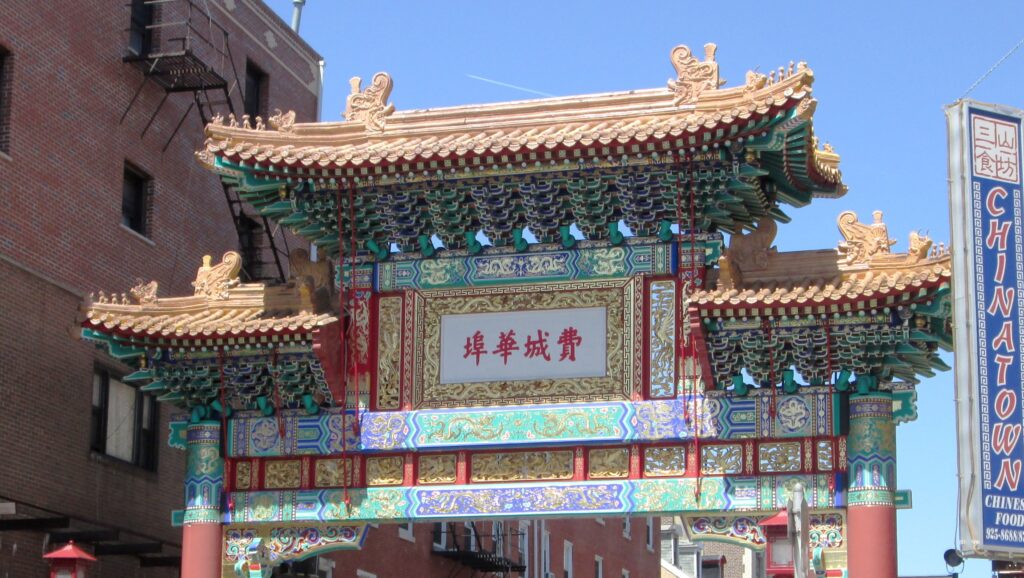Two issues ago, I wrote an article on the proposed Philadelphia 76ers arena in Center City. In this article, I explored Mayor Charelle Parker’s decision to move forward with the plan, and the potential impacts on the community. Since early November, much has happened.
In a stunning plot twist, the Sixers completely changed course and announced they would be staying in their current spot in South Philadelphia. The owners of the current Wells Fargo Center, Comcast and Harris Blitzer Sports & Entertainment, are replacing this in favor of “a world-class, state-of-the-art arena,” per the official statement. Mayor Parker, after pushing for the Center City arena, described this as “a win, win, win, win for Philadelphia,” in a press conference following the news. She also recognized the whiplash of changing narratives. “This is a curveball that none of us saw coming,” Parker said, while denying that this change of heart was inconsistent. “I don’t have the option of wallowing in a 180. This is a celebration for the city,” Parker said.
To recap, the Sixers currently play in Wells Fargo Center, an arena in the South Philly Stadium District that is shared with the Flyers. The owner of the Sixers, Josh Harris, has long looked to get out of this deal. Two years ago, the Sixers announced a proposal to build a new arena in Center City, called the 76 Place. Proponents of the proposal say this will generate revenue and investment to Market East, which has dried up in recent years despite multiple attempts to boost it.
However, the proposal also generated significant public outcry for a number of reasons. PBS reported among registered voters in Philadelphia, 18% supported the Center City arena, and 12% said the location was ideal. For some opposing the plans, this was a classic case of gentrification on the city’s nearby historic Chinatown, with activists warning of increasing rents which would kick out longtime residents. Others raised concerns about the potential traffic problems blocking access to Jefferson Health for emergencies, which healthcare workers warned could lead to unnecessary deaths. For activists and many local Philadelphians, it was another example of people in power listening to billionaire executives and large corporations more than the average people they were meant to represent. This outrage manifested in the almost two years of protests sponsored by coalitions such as Asian Americans United, Save Chinatown Coalition and Reclaim Philadelphia.
Regardless of the public outcry, however, city council approved the plan in late December, citing the benefits listed above. They voted decisively in a 12-5 verdict amidst a flooded city hall which saw the arrest of several activists. Save Chinatown Coalition wrote on social media: “What City Council did today was a disgrace: They bowed to billionaires, defied the will of the people, and voted through a toxic deal that robs schoolchildren, endangers patients, jeopardizes SEPTA, threatens Chinatown, and gives developers a free ride on $400 million in property taxes.” Meanwhile, one of the Sixers owners, David Adelman, said “[lawmakers] recognize how important this project is for the revitalization of our city.”
The activist groups told their supporters the fight was not over, although it was all but guaranteed to go through. It appears their words were more than shallow sentiments from the defeated. The Sixers changed their plans in a surprise move, and Chinatown can breathe a sigh of relief.
What are Philadelphian perspectives on the sudden change in arena plans? Mac Macolino is a junior history major at Eastern, and a Germantown native. “I absolutely would say it’s an overall good thing. I think sports can kind of happen wherever, and you can build an arena wherever there’s space and people will go to it. But Chinatown has been there for years and has a living, breathing culture and has people who have made roots and communities there… [the Center City proposal] really just reeks of gentrification, which is something I’ve seen in my own neighborhood for years and the neighborhoods where I grew up. I’m glad that it has lost this time,” Macolino said.
How do South Philadelphians feel about the decision to stay put in South Philly? I spoke with Elizabeth Beattie, a resident of South Philadelphia for the past five years. “I was relieved to hear the plans for the building of the arena in Center City are canceled and it’ll remain in South Philly. I’m not worried about heavier traffic, we already have the Linc and the Sixers and all the stadiums here and it hardly affects my day to day life. If I want to get onto the bridge into Jersey I definitely don’t want to do that anytime near the start or end of a big game but I think in 5 years that’s only affected me maybe twice,” Beattie said.
“We’re a mostly residential, almost suburban feeling area of philly; we’re all eagles and sixers and Phillies fans. It’s fun to see fans dressed head-to-toe walking through our streets toward the stadiums to catch a quick bus or train or just walk the whole way. I think having the stadiums closeby is a point of pride, not pain,” Beattie said.
The decision seems to have given the residents of everywhere in the city a feeling of relief, but the scars from an unpopular legislative decision remain, even among South Philadelphians. “I was angry and confused about the plans to build the arena in center city, mainly because it would cause such issues for Chinatown. The mayor and council members choosing to move forward with that project despite so many Philadelphian’s passionate objections is insane to me. It makes me wonder if the city government cares at all what our citizens want or perhaps are just interested in building their own careers or the money,” Beattie said. Although Chinatown is safe for now, the city of Philadelphia will have to earn back their trust with its residents.

